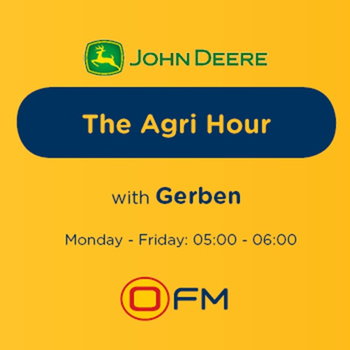
Agri-Uur 12 Augustus Wandile Sihlobo
Loading player...
Climate and Covid-19 pose risks for agriculture in some African regions
As usual on the Agri Hour, brought to you by John Deere, Wandile Sihlobo, Chief Economist at the Agricultural Business Chamber of South Africa, Agbiz, provides a weekly insert about the latest on the global as well as South African agricultural markets. He also provides more information about the latest developments in the agricultural sector.
Here is Sihlobo....
(FOR THE WEB: He says reports of a potential La Niña occurrence during the coming summer months present different risks for Southern and East Africa’s agriculture. In parts of the East Africa region, the La Niña weather event typically correlates with below-average rainfall in December to February. Meanwhile, the opposite is true for Southern Africa. According to him this is important for East Africa because this period is just before the start of the summer grains planting season, which is typically in February of each year. Therefore, a La Niña event would raise the risk of yet another poor agricultural harvest for countries in this region. Siholobo says conditions for Southern Africa could be different however with the occurrence of an expected La Niña event.
As usual on the Agri Hour, brought to you by John Deere, Wandile Sihlobo, Chief Economist at the Agricultural Business Chamber of South Africa, Agbiz, provides a weekly insert about the latest on the global as well as South African agricultural markets. He also provides more information about the latest developments in the agricultural sector.
Here is Sihlobo....
(FOR THE WEB: He says reports of a potential La Niña occurrence during the coming summer months present different risks for Southern and East Africa’s agriculture. In parts of the East Africa region, the La Niña weather event typically correlates with below-average rainfall in December to February. Meanwhile, the opposite is true for Southern Africa. According to him this is important for East Africa because this period is just before the start of the summer grains planting season, which is typically in February of each year. Therefore, a La Niña event would raise the risk of yet another poor agricultural harvest for countries in this region. Siholobo says conditions for Southern Africa could be different however with the occurrence of an expected La Niña event.



